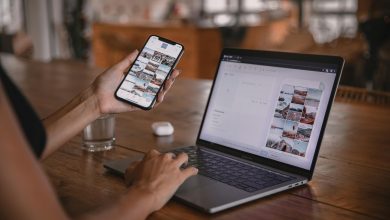Update for Multiple Entry Visit Visa (VKBP) D212

Update on Multiple Entry Visit Visa (VKBP) D212: What You Need to Know
Introduction: Travelers planning multiple visits to the UK for business or personal reasons are likely familiar with the Multiple Entry Visit Visa (VKBP) D212. This visa, designed for non-immigrant visitors, allows for multiple entries to the UK over a specified period, offering flexibility for those who frequently travel. Recently, there have been updates to this visa, which have impacted its application process, requirements, and permitted activities. In this article, we’ll break down everything you need to know about the VKBP D212 visa, the latest changes, and how to ensure a smooth application.
What is the Multiple Entry Visit Visa (VKBP) D212?
The VKBP D212 visa is a multiple-entry visa that enables non-UK citizens to enter the United Kingdom for short-term visits across various purposes—such as tourism, business meetings, attending conferences, visiting family, or receiving medical treatment. This visa is valid for a set duration, typically 6 months, 2 years, 5 years, or 10 years, and allows multiple entries, with each visit limited to a maximum stay of 6 months at a time.
Who Can Apply for the VKBP D212? This visa is suitable for individuals who:
- Travel to the UK regularly for business or family visits.
- Attend conferences or other professional engagements.
- Seek medical treatment in the UK.
- Engage in permissible activities that do not involve working or residing in the UK long-term.
Key Updates to the VKBP D212 Visa
Recent updates to the VKBP D212 visa aim to streamline the process, clarify permitted activities, and enhance security checks. Here’s a summary of the most significant changes:
1. Stricter Documentation Requirements
- To curb fraudulent applications, the UK government has tightened the required documentation for visa applications. Applicants must now provide comprehensive evidence supporting their intent to visit the UK for a short stay. This includes:
- Proof of sufficient funds for the duration of the visit.
- Proof of ties to your home country (such as employment, property ownership, or family) that ensures your return after each visit.
- A detailed travel itinerary, including purpose and length of stay.
2. Biometric Data Submission
- Biometric data (fingerprints and photographs) has become mandatory for all applicants. This step is part of the effort to enhance security and prevent identity fraud.
- Applicants must schedule an appointment at a UK Visa Application Centre to submit their biometric information.
3. Clear Guidelines on Permitted Activities
- There has been an effort to clarify which activities are allowed under the VKBP D212 visa. Visitors may:
- Attend business meetings or conferences.
- Take part in events, such as sporting or artistic activities.
- Visit friends and family.
- Engage in short study courses (up to 30 days) that are not the main reason for the visit.
- Visitors cannot:
- Work or engage in paid employment.
- Marry or register a civil partnership (a specific visa is required for this).
- Access public funds.
4. Travel Frequency Monitoring
- The UK Border Agency is now actively monitoring the frequency of visits under the VKBP D212 visa. Frequent visitors who stay for extended periods or repeatedly use the visa for back-to-back trips may face scrutiny. This is to ensure the visa is used for short-term stays and not as a workaround for long-term residence.
- It is essential for applicants to ensure that their travel complies with the visa terms and does not raise red flags that could lead to future visa refusals.
5. New Online Application System
- The UK government has enhanced its online visa application platform. The updated system simplifies the application process, allowing applicants to upload documents, pay fees, and book appointments in one streamlined portal.
- The system is also designed to provide real-time updates on application status, ensuring better communication between applicants and the Home Office.
How to Apply for the VKBP D212 Visa
The application process for the VKBP D212 visa follows these key steps:
Step 1: Prepare the Required Documents
Ensure you have the following documents ready before starting the application:
- Valid Passport: With at least six months’ validity remaining and a blank page for the visa.
- Proof of Financial Stability: Bank statements, payslips, or other documents demonstrating that you can support yourself during your stay.
- Proof of Travel Plans: A detailed itinerary including flight reservations, accommodation bookings, and the purpose of your visit.
- Biometric Appointment Confirmation: You’ll need to schedule this after submitting your application.
Step 2: Complete the Online Application
Visit the official UK visa website and complete the VKBP D212 visa application form. This will include providing personal details, travel history, and the purpose of your visit. You will also upload supporting documents at this stage.
Step 3: Pay the Visa Fee
Depending on the duration of the visa, fees vary:
- 6-month visa: £100
- 2-year visa: £376
- 5-year visa: £670
- 10-year visa: £837
The visa fee is non-refundable, even if the application is denied, so make sure all your documents are accurate and complete.
Step 4: Attend the Biometric Appointment
Applicants must attend an in-person biometric appointment at a designated Visa Application Centre. During this appointment, your fingerprints and photographs will be taken. Ensure you bring your passport and appointment confirmation.
Step 5: Wait for Processing
Visa processing times typically range from 15 working days to 6 weeks, depending on the application load and visa centre. Priority and super-priority services are available for faster processing, at an additional fee.
Tips for a Successful VKBP D212 Visa Application
- Be Honest and Detailed in Your Application: Any inconsistencies or omissions can lead to delays or rejections. Ensure all information provided is truthful and accurate.
- Organize Your Documents: Present clear, legible copies of all required documents. Submitting incomplete or unclear documentation is a common reason for visa refusal.
- Be Ready for an Interview: Some applicants may be called for an interview to discuss the purpose of their visit. Be prepared to answer questions about your ties to your home country and your plans while in the UK.
- Understand Visa Conditions: Respect the terms of your visa, especially the length of stay and frequency of travel. Overstaying or misusing the visa could lead to penalties, including future visa denials



